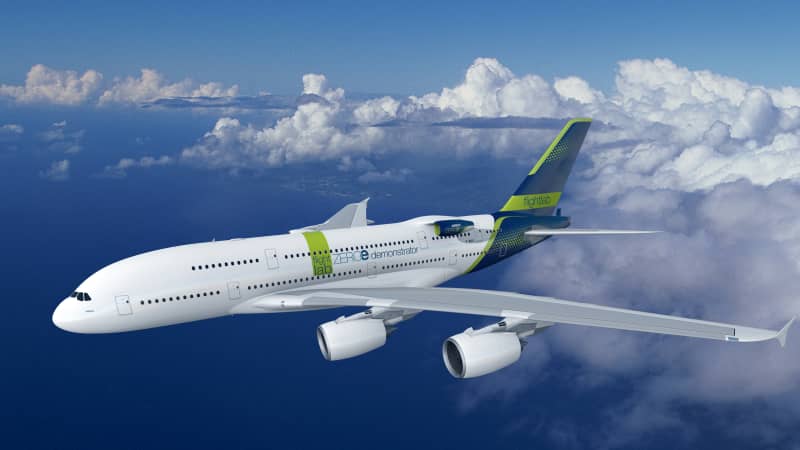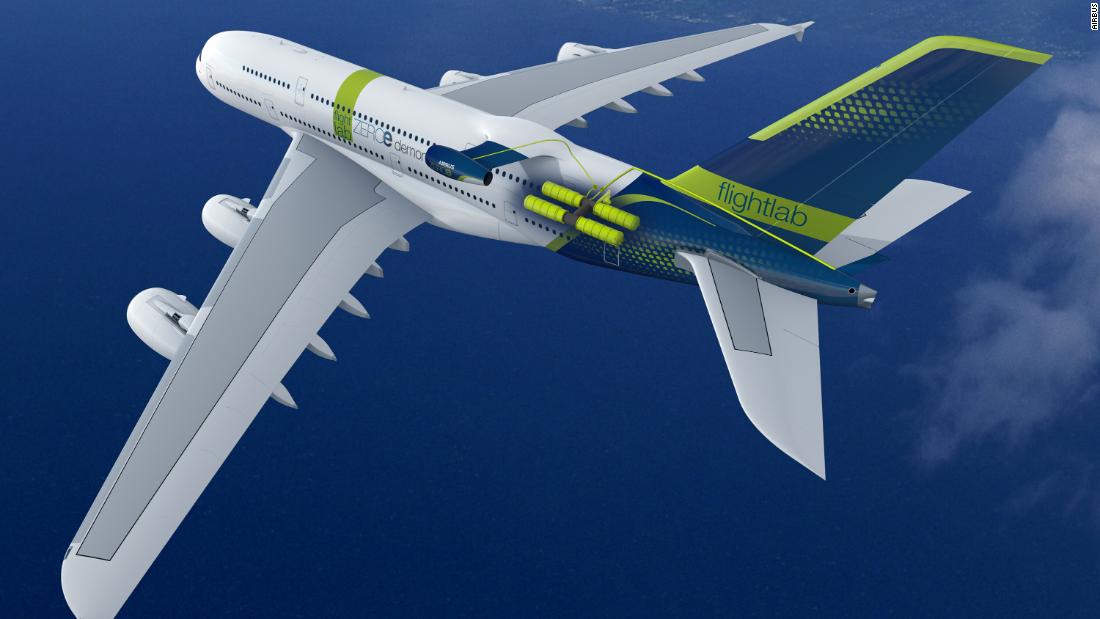(CNN) — Airbus just moved one step closer to launching the world’s first zero-emission commercial aircraft by 2035.
The French aircraft maker has announced plans to test hydrogen fuel technology using a modified version of one of its A380 jetliners, which were discontinued last year.
Airbus has partnered with CFM International, a joint venture between GE and Safran Aircraft Engines, on the hugely significant hydrogen demonstration program.
The plane manufacturer will use an “A380 flying testbed fitted with liquid hydrogen tanks” to trial propulsion technology for its future hydrogen aircraft.
‘Flight laboratory’
He goes on to explain that the aircraft will be fitted with hydrogen storage and hydrogen distribution, which will feed its engine with the chemical element.
According to Llewellyn, the aim of the “flight laboratory” is to learn more about hydrogen propulsion systems in real ground and flight conditions, thus enabling Airbus to press on with its plans for a zero-emission aircraft in just over a decade.
Test flights are currently estimated to take place in 2026, provided everything goes to plan. The news comes over a year after Airbus unveiled three hydrogen-based concepts under the ZEROe banner.

A rendering of the A380 flight test platform, which will put hydrogen combustion technology to the test.
Airbus
“This is the most significant step undertaken at Airbus to usher in a new era of hydrogen-powered flight since the unveiling of our ZEROe concepts back in September 2020,” Sabine Klauke, chief technical officer for Airbus, said in a statement.
“By leveraging the expertise of American and European engine manufacturers to make progress on hydrogen combustion technology, this international partnership sends a clear message that our industry is committed to making zero-emission flight a reality.”
Guilt-free flying?
The global aviation industry has pledged to slash emissions to half their 2005 levels by 2050.
However, Airbus is hedging its bets on hydrogen, which can potentially reduce aviation’s carbon emissions by up to 50%, according to the airplane manufacturer.
“I strongly believe that the use of hydrogen — both in synthetic fuels and as a primary power source for commercial aircraft — has the potential to significantly reduce aviation’s climate impact,” says Guillaume Faury, chief executive for Airbus.
CNN’s Paul Sillers also contributed to this report
